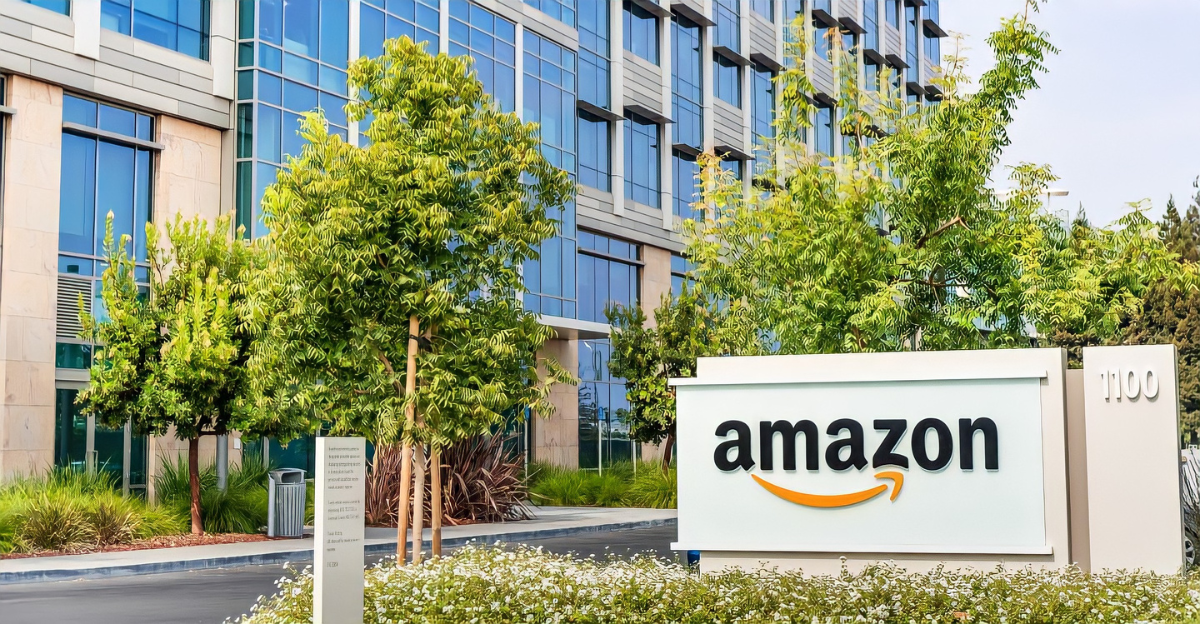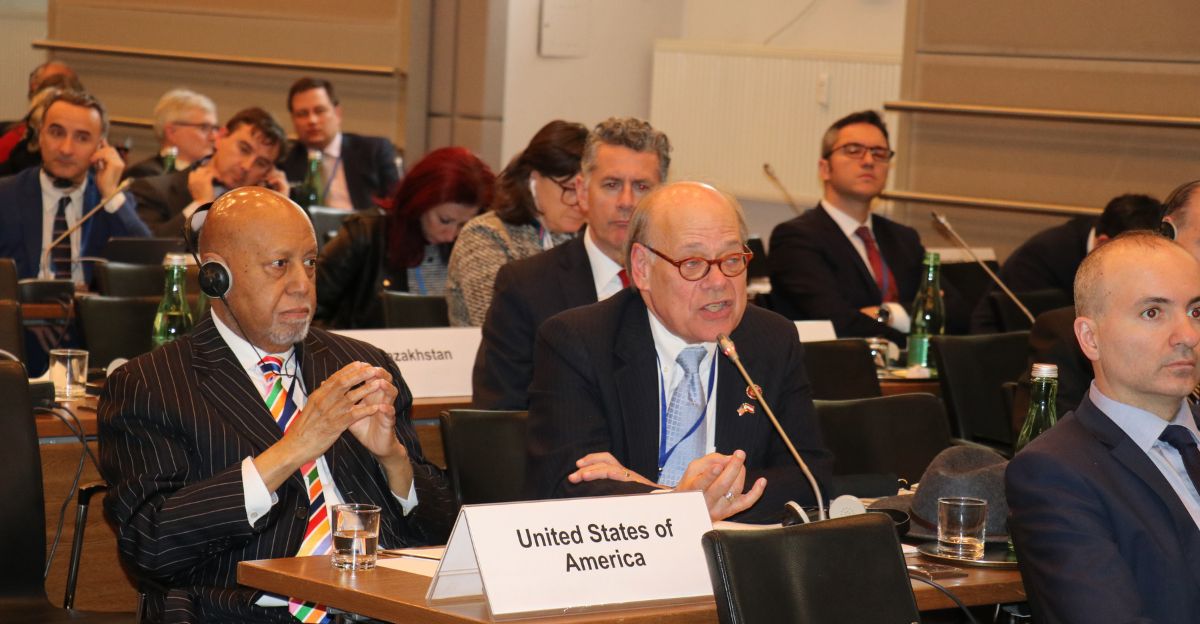
When Amazon announced the relocation, many viewed it as a bold and transformative shift in its global headquarters outside the United States; it was considered a tectonic shift in its business strategy, not simply a relocation.
Amazon is reacting to a hostile business situation that threatens its global supply chain and profit margins, fueled by the Trump administration’s malign use of tariffs, including a 145% tax on key raw materials.
The company’s initiative is proactive, not reactive, to preserve the viability of its overall business plan. It was an operational decision to move to the UAE. The UAE is a free-trade zone with low taxes and little regulatory resistance.
The Tariff Tsunami That Shook Amazon’s Foundations

Removal of the de minimis loophole and Trump administration tariffs, particularly the substantial 145% levies placed on a wide array of goods ranging from smartphones to sneakers, have brought U.S. retail supply chains and logistics to a critical dislocation.
Such robust trade policies led to Amazon’s 80% reduction in container volume from China, emphasizing the piling pressure on global trade. Removing the de minimis loophole also increased business expenses for importing low-value goods.
As such, the United States is becoming less and less welcoming to multinational firms dependent on international supply chains. Amazon’s move shows how protectionist trade policies can inadvertently drive away innovation and high-value economic contributors.
Why the UAE? A Strategic Economic Oasis

Amazon’s relocation of its world headquarters to the United Arab Emirates is not a random coincidence, but a strategic and calculated move. In addition to being business-friendly with free zones, no corporate tax, and low barriers to regulation, the geographical placement of the UAE at the center of Asia, Europe, and Africa gives it unique access to the globe and enhanced supply chain efficiency.
Amazon can avoid high tariffs and unnecessary supply chain chaos experienced throughout the U.S. by operating out of the UAE. This paradigm shift is merely a part of broader global changes in which new centers of power emerge while consolidating traditional Western beds that have dominated international politics and economics for centuries.
The Beginning of Widespread Corporate Shifts

Amazon’s move will undoubtedly stimulate corresponding effects throughout U.S. corporations, like Tariffs and regulations, which actively create friction and barriers for them. Companies like Ford and Apple are already burdened with tariffs and trade restrictions, diminishing their ability to compete worldwide.
The action taken by Amazon is a powerful signal to deter other companies from relocating their headquarters abroad to reduce these increasing burdens. Other large businesses get into line, and the result might be a massive corporate mass migration that dents the U.S.’s position as a global economic superpower.
Lessons From History on Corporate Decision-Making and Economic Disruption

Amazon’s decision may ripple effect on U.S. companies facing the same tariff and regulatory pressures. Ford and Apple are already experiencing rising costs associated with tariffs and protectionism, which are hindering their ability to compete internationally.
Amazon’s action shows that it is an option to insulate against rising costs by moving its headquarters offshore. If other major firms follow suit, the result could be a massive corporate exodus, discouraging America from its role as a world economic leader.
The trend may compel American policymakers to rethink protectionist trade policy that can smother innovation and drive investment overseas.
The Psychological Impact on Employees and Corporate Culture

A change of global headquarters can profoundly impact corporate culture and staff morale; it is not purely a logistical consideration. Thousands of independent teams form Amazon’s decentralized system of operations.
Fusion is deeply ingrained in Amazon’s operations and always seeks to cultivate internal alignment and collective leadership values. Relocating the headquarters could sever this culture, create communication chasms, and make leadership relationships tenuous.
But, because Amazon has the inherent flexibility and practical experience in offering remote work, the transition may be easier than for local firms.
Bengaluru’s Real Estate Shifts Driven by Corporate Savings

Amazon’s recent relocation from its Indian HQ in downtown Bengaluru to a lower-cost site near the airport is consistent with recent cost optimization globally. The move was reminiscent of the U.S. HQ move in that it prioritized operational efficiencies against a backdrop of changing economic circumstances.
Both moves have consequences for local property markets and employees’ lifestyles, as seen in Bengaluru, where increased commuting distances sparked employee anxieties. Amazon’s global HQ move could also reshape city economies and labor markets, marking another classic corporate real estate strategy.
Is Amazon Turning Its Back on America?

Some critics have charged Amazon’s move to Canada as evidence of a betrayal of its American roots, and that it is a victory for national sovereignty concerning finance. Looking at it strategically, the move signified a more reasonable response to a slow-playing Strategy environment with many tariffs, administrative constraints, and delimitation.
Amazon prioritizes survival, growth, and returning money to its investors over ancient ideas of national loyalty. The move pushes back against established norms of corporate citizenship, reminding us all that globalized businesses must play under the international rules of their choosing.
In so doing, Amazon forces a broader reevaluation of what it means to be a “homegrown” firm in an era when national agendas can attract or repel innovation.
The Intersection of Business and International Power Moves

Amazon’s relocation to the UAE is a geostrategic response in the worldwide geopolitical chess match between the United States and global markets. Amazon has relocated its headquarters; it intentionally circumvents retaliatory tariffs while tethering itself to an emerging economic superpower that guarantees political stability, sound trade agreements, and effective global logistics.
This move illustrates how multinational corporations emerge as powerful political actors that utilize geographic aspects to influence policy outcomes and gain market access.
As firms gain bargaining leverage through strategic movement, their actions directly conflict with government policy and economic strategy, announcing a new era where business actions can reshape global trade flows and international relations.
What’s Next for Corporate Strategy and Government Policy

Amazon’s expansion into the UAE is a chess countermove in the game of chess that the United States and world markets are playing. By moving its headquarters, Amazon avoids the straitjacket of retaliatory tariffs and finds itself bordering an up-and-coming economic hub with political stability, investor-friendly laws, and close to key international trade routes.
It is a symptom of a broader issue: multinational corporations are no longer innocent bystanders; they are participants in the geopolitics of space. By moving physically, they can dictate policy, market things they would not have marketed before, and bully nations.
The Amazon move may be the high-water mark where global diplomacy and corporate strategy are becoming nearly indistinguishable.
Discover more DIY hacks and style inspo- Follow us to keep the glow-up coming to your feed!

Love content like this? Tap Follow at the top of the page to stay in the loop with the latest beauty trends, DIY tips, and style inspo. Don’t forget to share your thoughts in the comments — we love hearing from you!